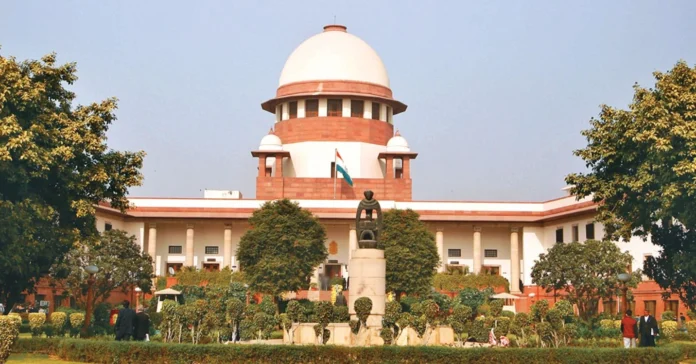The Supreme Court on Friday issued a sweeping set of interim directions revising its earlier mandate on stray dog management, making the guidelines applicable across India. A Bench led by Justice Vikram Nath clarified that these instructions are temporary until a comprehensive national policy is formulated. Justice Nath stated that the court has impleaded all States and Union Territories and broadened the scope to make this pan-India, while transferring similar petitions pending before various High Courts to the apex court.
Notices have been issued to Animal Husbandry Departments across the country to ensure compliance with the Animal Birth Control (ABC) Rules.
In a significant relaxation of its earlier stance, the court stayed the prohibition on releasing strays back into their habitats. Municipal authorities must now ensure that dogs are dewormed, vaccinated, sterilized, and returned to their original locality in accordance with Paragraph 12 of prior guidelines. However, dogs exhibiting aggressive tendencies or infected with rabies will not be released under any circumstances and must instead be immunized and kept under supervision.
The court imposed a strict ban on feeding stray dogs in public spaces, directing municipal bodies to create designated feeding zones within their jurisdictions. Justice Nath warned that under no condition is feeding allowed in open public areas and any violation will be proceeded against in accordance with law.
Authorities have also been instructed to set up dedicated helplines and install boards to enforce this rule. To prevent obstruction of official duties, the court reiterated its earlier direction that no person or organization shall interfere with municipal staff carrying out these measures.
Individuals and organizations involved in the case have been asked to furnish security deposits ₹25,000 for individuals and ₹2 lakh for NGOswithin seven days, failing which they will not be allowed to participate further. The amount will be utilized for creating infrastructure and facilities for stray dog care under municipal supervision.
Justice Nath also introduced an adoption mechanism, allowing animal lovers to apply to civic bodies for adopting street dogs. Such dogs will be tagged and monitored, with the condition that they eventually return to their original area.
The Bench emphasized that these measures aim to ensure humane treatment of animals while maintaining public safety. Municipal corporations have been directed to file affidavits detailing their compliance efforts, including resource availability for implementing the ABC Rules.
The Registry has been tasked with collecting information on all similar matters pending in High Courts, which will now be consolidated before the Supreme Court. Justice Nath concluded by noting that these directions, while interim, mark a step toward a uniform national framework. The matter is scheduled for further hearing in October.


